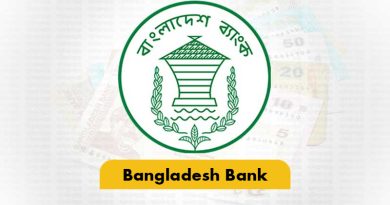
Bangladesh Bank Governor Ahsan H Mansur holds a press conference at the central bank headquarters on 7 July 2025. Photo: TBP
No form of supervision in the banking sector will be effective without qualitative reforms in the country’s political system, Bangladesh Bank Governor Ahsan H Mansur has said today (7 July).
Speaking at a press conference on risk-based supervision (RBS) held at the central bank headquarters, he said, “We aim to ensure legal compliance and meaningful oversight in banks through RBS.”
Responding to questions on why the central bank’s guidelines and strict supervision had failed to curb irregularities in the banking sector, the governor said, “Irregularities in the banking sector during the previous regime have been identified.
The Business Standard Google News Keep updated, follow The Business Standard’s Google news channel
“The previous government did not allow implementation of corrective actions. So, no supervision in the banking sector will be effective without qualitative reforms in the political system.”
In response to a reporter’s question about whether risks in the banking sector can be mitigated through a supervision system, he said, “This supervisory system cannot address political risks. To reduce political risks, politics itself needs to be reformed. Bangladesh Bank must be given full autonomy. Work is underway in this regard, and we will present the proposal to the government.”
He further stated, “Unless there is a qualitative change in politics, the supervision system alone will not be able to reduce risks in the banking sector. The consequences of the political party that weakened the banking sector are visible to all. While chaos may offer temporary benefits, in the end, it does not serve political parties well. That’s why efforts are being made to establish a banking sector free from political influence.”
Currently, pilot RBS programmes are underway in 20 banks, he said, adding that the remaining 41 banks will also be brought under the system in phases.
On the appointment of independent directors, the governor said, “Banks must select independent directors from a panel formed by Bangladesh Bank. If a bank wants to appoint someone outside this panel, it must apply to Bangladesh Bank. After a ‘fit and proper’ test, the person may be added to the panel for appointment.”
Addressing liquidity concerns, he said, “Liquidity support has been provided to several banks to help repay small depositors. However, it may take more time for large-scale withdrawals.”
“Still, I want to assure everyone that all deposits in banks are safe,” he added.
Regarding bank mergers, the governor said, “We will hold separate meetings with the six banks. If they can show good reasons, then there will be no merger. As far as we know, all six banks have been badly affected. That is why the decision to merge them has been taken.”
In response to a question about the board restructuring of distressed banks, he said, “Some banks are doing very well after board restructuring. However, if the boards of those banks are not performing, if necessary, the boards will be restructured again.
“We have already written to financial institutions asking why they should not be closed. If they can show reasonable reasons and the government agrees, Bangladesh Bank will not take any strict action against them. However, I think some financial institutions will have to be closed.”
He further said, “The central bank is also considering whether it is possible to change from the dollar-based reserve system to commodity reserve or other assets.”






